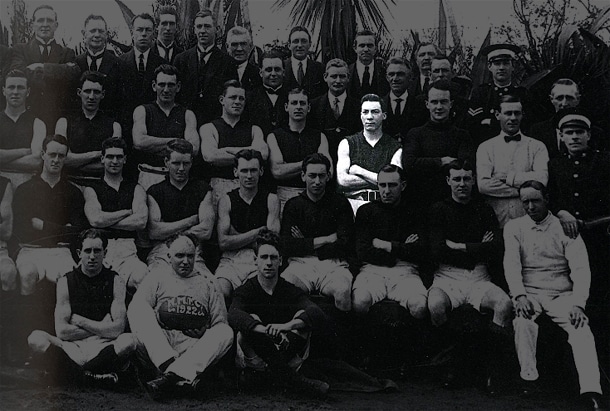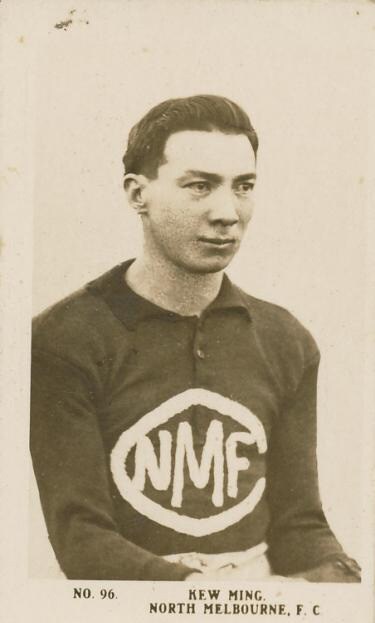Information sourced from The North Story and australianfootball.com
Few people would have heard of Leslie Henry Kew Ming, but in an era remembered for the White Australia policy, he was a pioneer for multiculturalism.
Kew Ming’s father had emigrated from China, while his mother’s parents were Chinese and Scottish.
He was in born in 1897 in St Arnaud, and while historians point to the caution with which the locals treated the Chinese, Kew Ming’s prowess from an early age as a footballer and cricketer helped him fit in.
His sporting ambitions were put on hold when he enlisted for World War I and at just 19 years of age, he was one of 200 men of Chinese descent to fight with the First Australian Imperial Force.
Kew Ming travelled to Europe and it seemed his talents weren’t just confined to sport. Within six months of enlisting, he had been promoted to Corporal and soon after, he was awarded a Military Medal for bravery for leading a team that was building a communication trench under heavy fire.
At 22, he returned to Australia keen to continue playing football. After a premiership at Wedderburn, he was scouted by North Melbourne; then one of the powerhouse clubs in the VFA, which incidentally coincided with the introduction of a new uniform.
 |
George Rawle was captain-coach, and North won 13 of 18 games in the 1922 season, with Kew Ming playing half-back.
Like Wally Koochew, who played for Carlton in 1908, he regularly put up with racial abuse, but simply got on with the game.
Kew Ming was an influential player known for his long kicking, but the team ultimately fell short as Port Melbourne defeated North by 26 points in the Final.
Remarkably, just two of the players that lined up in 1922 were in the team that was runner-up just two years earlier. In 1921, the club had disbanded and virtually rebuilt itself.
Kew Ming’s VFA career was short-lived. He broke his collarbone in 1923 which put an early end to his season. But his impact on breaking down barriers was profound.
 |
In 1925 he won the Shepparton Gift and three years later, he won 50 pounds in a Sporting Globe kicking competition. He amazingly booted a drop kick 66.7 metres and a punt 68.4 metres.
Kew Ming was a key instigator in paving the way for the embracing of the many cultures represented in our game today.


